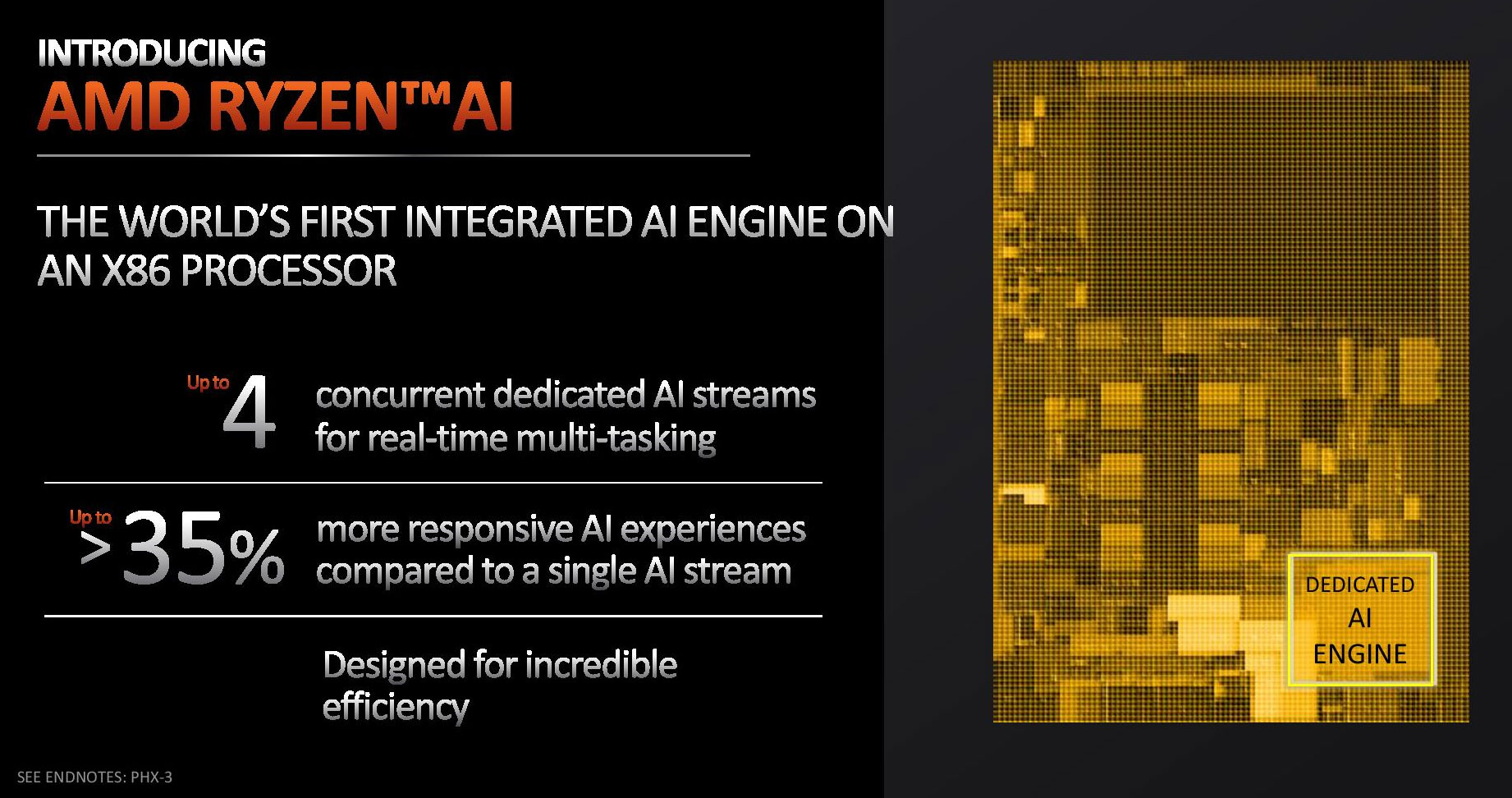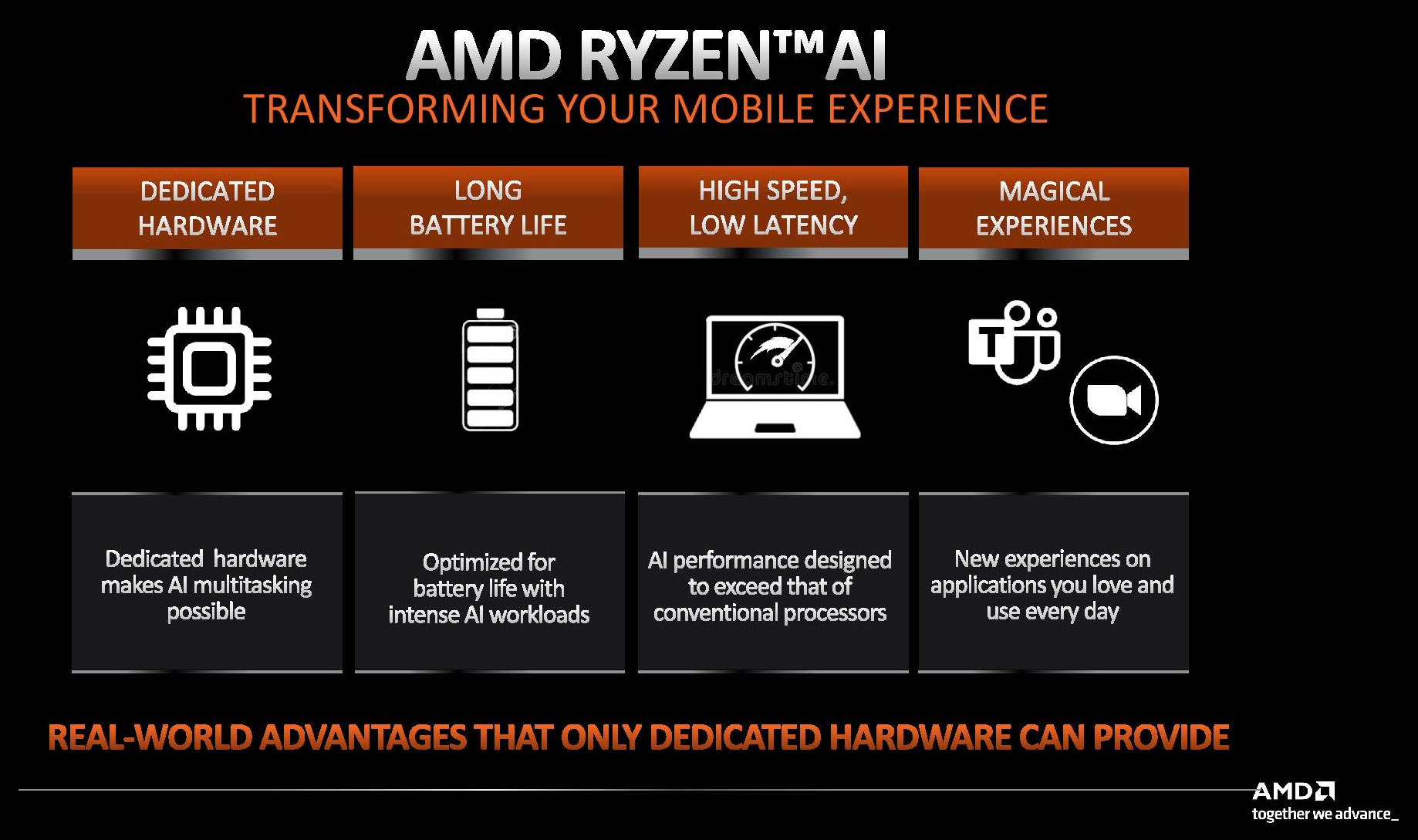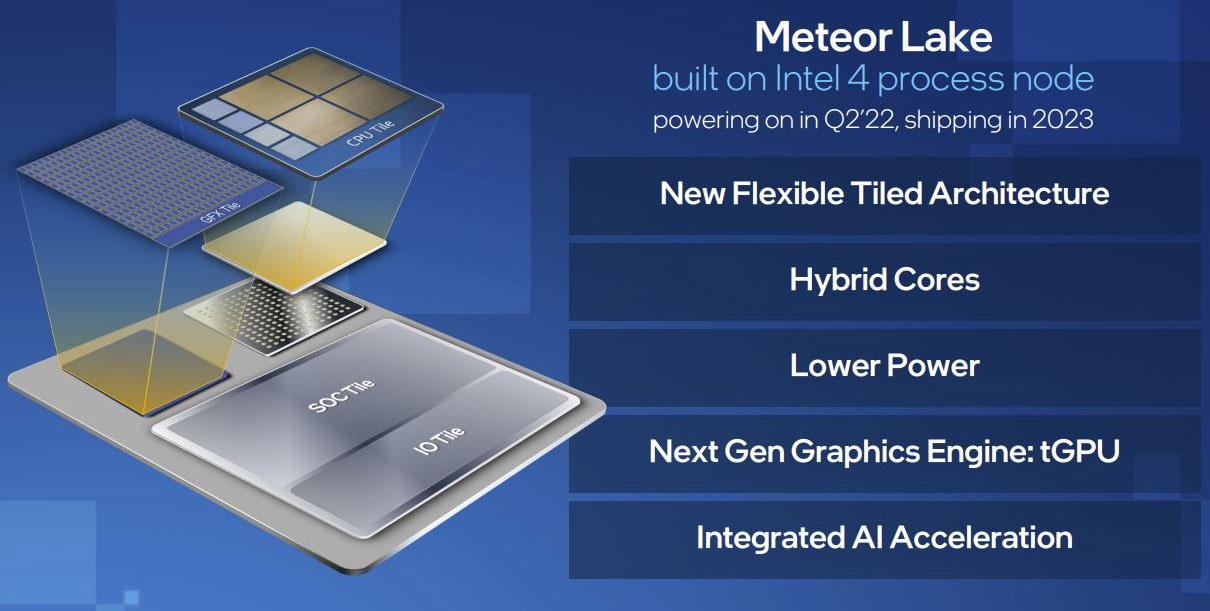AMD and Intel Battle for Windows 11 AI Acceleration Lead
AMD will be first with dedicated AI hardware in the Phoenix chips, while Intel users have to wait for Meteor Lake.

AMD and Intel are both seeking to position their processors as the best choice for powering all the new AI frills coming to Windows 11. The dueling tech titans have shared news and press releases about AI acceleration just hours before Microsoft is expected to drop the Windows 11 ‘Moment 3’ update (check our coverage later today).
AMD AI Processing Hardware for Consumers
AMD reckons that AI is one of the most exciting computing innovations since 3D-accelerated graphics arrived around four decades ago. Like back then, established processing power can attempt to run the newest boundary pushing applications, but a specially designed accelerator will allow people to take fuller advantage of the new features and the experiences enabled.
With the above in mind, AMD has already debuted a dedicated on-die Ryzen AI processing block in select new Ryzen 7040 series (Phoenix) processors, which are also notable for being its most advanced mobile APUs, melding Zen 4 and RDNA 3 architectures.


Coinciding with the new Moment 3 update for Windows 11, AMD wanted to say that Ryzen AI is designed to support all the new Ai innovations, such as Windows Studio Effects. It explains that the dedicated AI processor enables features like eye contact, automatic framing, and advanced background blur in this camera software. AMD is working closely with Microsoft on providing early access to Ryzen AI developer tools “to bring to life a future of amazing AI experiences on Windows 11.” This is just the beginning of AI innovation in Windows 11, it says.
Intel AI Processing Hardware for Consumers
Intel admits it doesn’t currently have an AI co-processor in its consumer CPU lineup. However, it says that it is working with Microsoft and others to preview AI-enabled Meteor Lake processors.
Meteor Lake, with its chiplet SoC design, will include a built-in neural VPU, which Intel further describes as “a dedicated AI engine integrated directly on the SoC to power efficiently run AI models.” In Meteor Lake’s SoC, the VPU will thus take some of the CPU and GPU AI-accelerator load to deliver a better and more efficient processing balance, or even new capabilities.

Interestingly, Intel added that it hopes to ship “millions of units of Meteor Lake with its dedicated AI engine” over the next year. A lot of people have been asking whether Meteor Lake will be mobile-only, and this isn’t cleared up in Intel’s blog post, but it is looking more likely.
Get Tom's Hardware's best news and in-depth reviews, straight to your inbox.
While Intel also mentioned collaboration with Microsoft for Windows 11 AI enhancements, it has obviously got a little further to go – the hardware is not yet available to consumers. However, like AMD, Intel is enabling developers to “use ONNX Runtime and related toolchains to run their AI models optimally on the Windows platform,” explained Pavan Davuluri, CVP of Windows Silicon & System Integration, at Microsoft.
Microsoft’s Windows 11 ‘Moment 3’ update, and other updates due later this year, will leverage AI to deliver improved productivity and a better user experience. One of the biggest new integrations into the OS will be Windows Copilot, arriving in preview from June, offering centralized OS assistance (see video above). Moreover, a new section of the Microsoft Store will be dedicated to AI apps.

Mark Tyson is a news editor at Tom's Hardware. He enjoys covering the full breadth of PC tech; from business and semiconductor design to products approaching the edge of reason.
